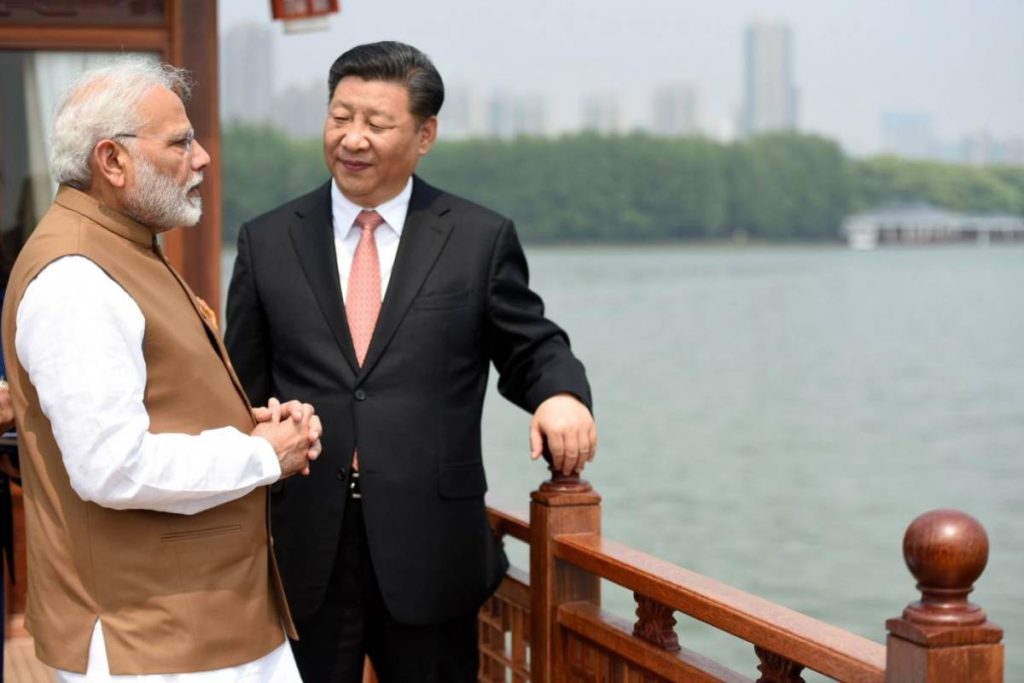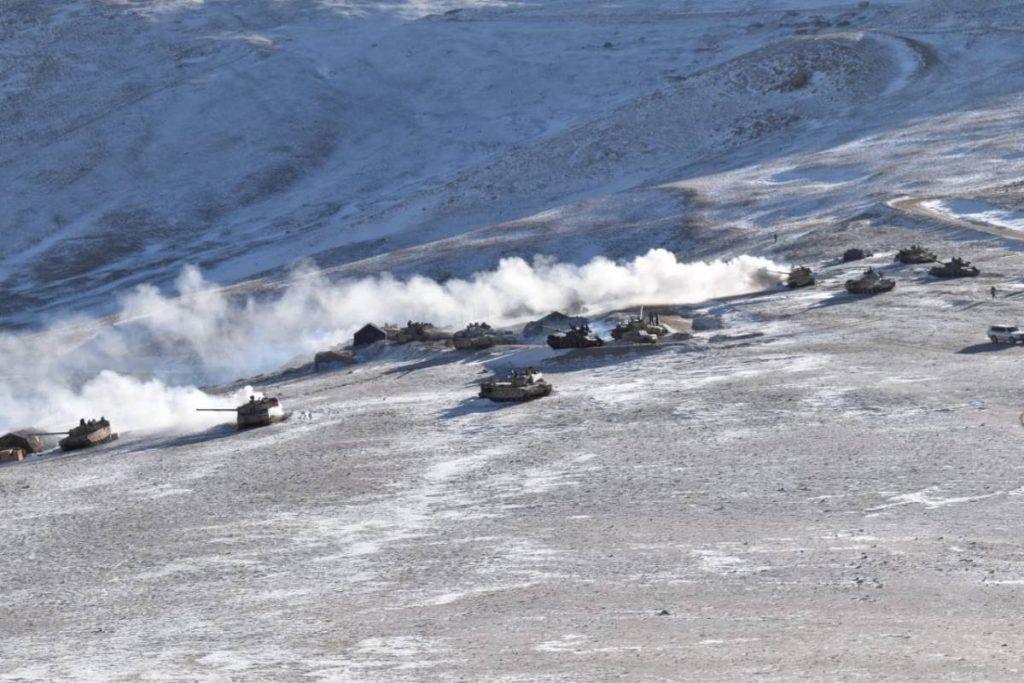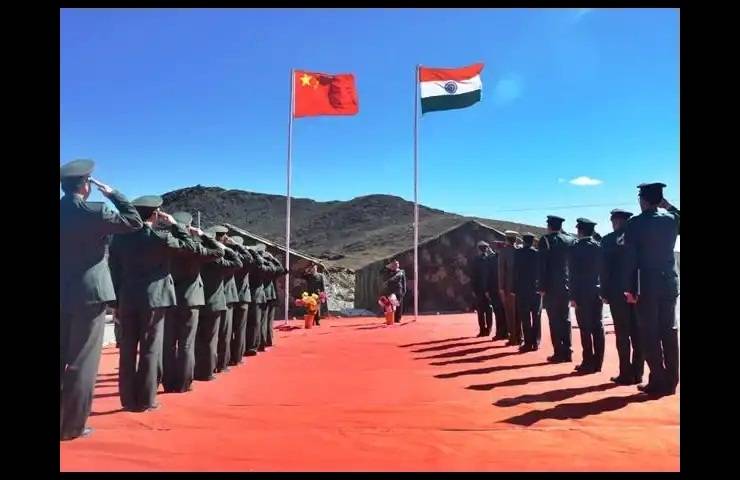Insiders point out that India-China ties cannot progress meaningfully unless Beijing ends its incursion across the Line of Actual Control (LAC) in Ladakh and restores the status quo ante prior to the movement of its forces across the LAC in May 2020, a report by Mahua Venkatesh
Amid geopolitical tensions threatening global economic recovery China underlined that Beijing and New Delhi must promote cooperation and mutual trust among each other. The current Russia-Ukraine crisis has only prompted several countries in Asia to start looking at measures and recharter trade mechanisms to boost economic recovery.
But insiders point out that India-China ties cannot progress meaningfully unless Beijing ends its incursion across the Line of Actual Control (LAC) in Ladakh and restores the status quo ante prior to the movement of its forces across the LAC in May 2020.
Unfortunately, the 15th round of India China Corps Commander level talks failed to provide any breakthrough. But the Beijing based news organisation Global Times did try to put a positive gloss on the talks, pointing out that the meeting concluded highlighting the positive atmosphere since the 14th round of talk, “as the two sides reached consensus on agreeing to maintain dialogue via military and diplomatic channels to reach a mutually acceptable resolution to the remaining issues at the earliest time.”

However, in India, policy makers are looking not at words but at action on the ground marked by disengagement from the border and restoration of the status quo ante as the basis for reviving ties and leveraging the new geopolitical situation arising out of Russia’s attack on Ukraine.
A joint statement issued on Saturday said that talks would continue between the two sides to reach a mutually agreed resolution that would help in restoring peace along the Line of Actual Control (LAC) while boosting bilateral relations.
Just ahead of the much-awaited talks, Chinese Foreign Minister Wang Yi said at a press briefing that the two countries should not allow territorial disputes “to affect the overall interests of bilateral cooperation,” the newspaper said in another report.
“China-India relations have suffered some setbacks in recent years, which does not serve the fundamental interests of the two countries and peoples,” it quoted Wang as saying.
ALSO READ: China refuses to supply Russia with aircraft parts
Despite the heightened border tensions, bilateral trade between the two countries crossed a record $125.6 billion in 2021. In 2001, it was just $1.83 billion. However, the distrust between the two countries is evident as India has shut out Chinese companies in the lucrative 5G market. Besides, many Chinese apps have been shown the door following the border tensions.
As the Russia-Ukraine conflict intensified, the US and countries in the European Union are closely monitoring developments in this region. India and China together account for about 36 per cent of the world population.
Interestingly, India along with China, Bangladesh, Sri Lanka, Pakistan among several others in Asia as well as Africa have been on the same page in relation to the Russia-Ukraine issue. The BRICS bloc comprising India, China, Brazil, and South Africa besides Russia has also taken a similar stand towards the ongoing conflict.
“We have taken a pragmatic view of the India China border issue as well..economic and trade related activities have not been dented and there has been no disruption of the supply chain network, there were issues during the first wave of Covid 19 but that had nothing to do with the border issue,” an insider told India Narrative. But focused on the disengagement on the border, the insider said that the ball is in China’s court for the new emerging post-Ukraine correlation to go forward.

China trims growth target
China has set a growth target of 5.5 per cent for the current year amid rising geopolitical uncertainties and domestic challenges. Amid a battered real estate market, Covid 19 pandemic-hit small and medium enterprises and the overall crackdown on the private sector in 2021, Beijing’s message to the global business community is clear: the focus this year would be on regulatory stability to put economic growth back on track.
Promising to put in place more policy measures to support the economy after a strict regulatory clampdown especially on the private sector last year, Chinese Premier Li Keqiang presented the annual government work report to the country’s lawmakers. He also said that the external environment is now, “volatile, grave and uncertain.”
To support economic growth, Beijing could look at announcing tax cuts for businesses. Besides, public expenditure has also increased.

“Achieving this goal will require arduous efforts,” Li said as China’s two main political bodies – the National People’s Congress and the Chinese People’s Political Consultative Conference (CPPCC) kicked off their meetings on Friday. Russia’s invasion into Ukraine has already led to a surge in global commodity prices. All indications now point towards a slow and delayed economic revival.
Known as the “Two Sessions” meetings or Lianghui in Chinese, these have always attracted immense global attention, especially for foreign investors as they outline Beijing’s political and economic priorities while providing overall policy direction. This year employment generation will also remain an area of concern.
According to Beijing based Global Times, the “triple pressure” of shrinking demand, supply shocks and weakening expectations could hit China, which has also rolled out several measures to clean up bad debts in its local governments and their financing arms known as local government financing vehicles (LGFVs). Chinese President Xi Jinping’s call for “common prosperity” led to a further rise in uncertainty among the businesses.

As China housing behemoth Evergrande Group along with a few other prominent companies collapsed last year, the real estate sector accounting for about 30 per cent of the country’s GDP has come under pressure.
China’s stringent zero covid approach has only added to the problem. The stringent measures put in place to arrest the spread of the pandemic created further confusion among businesses and citizens at large. The International Monetary Fund (IMF) earlier warned that the stringent restrictions at this stage could be damaging for China.
Beijing registered a growth of 4 per cent in the fourth and final quarter of 2021 after stunning the world with an 18.3 per cent at the beginning of the year. But thereafter its economic expansion has been easing. In the third quarter China’s growth rate was 4.9 per cent while it was 7.9 per cent in the second.

